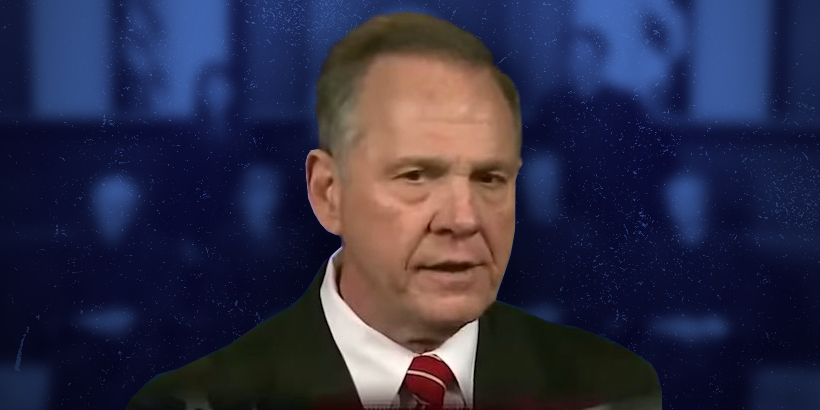MOBILE – He’s been described as the anti-establishment establishment’s candidate, having not only scored support from household conservative media names including Weekly Standard editor Bill Kristol, National Review editor Rich Lowry and American Spectator editor R. Emmett Tyrell, but other figures including former Democratic Rep. Artur Davis, now a Republican, and 2012 GOP presidential hopeful and Pennsylvania Sen. Rick Santorum.
But despite that and his quick start out of the gate, Republican congressional hopeful Quin Hillyer has not yet earned respect from some who are handicapping the special election set to replace retiring Rep. Jo Bonner, R-Mobile later this year.
Over the past decade, Hillyer has been both a creature of Mobile and a creature of Washington, D.C. After serving as a press aide for former Louisiana Republican Rep. Robert Livingston, Hillyer worked for various media outlets including locally for the Mobile Register, and nationally for The American Spectator, The Washington Examiner and The Washington Times.
In 2011, Hillyer returned to live in Mobile while continuing to hold down a position for the Alexandria, Va.-based Center for Individual Freedom and still serving as a senior editor for the Spectator.
Last week, Hillyer took time out of his busy campaign schedule to sit down with Yellowhammer to discuss the campaign and what motivated him to jump into this election.
“Why am I running? One of sort of personal interest,” he said. “I’ve been doing this since before 1980. I was in the convention hall when Ronald Reagan accepted the nomination for president for the first time, in Detroit. I was even on the front page of the Detroit News that very morning. I’ve been doing this ever since.”
But Hillyer says his other reason is that he believes knowing his way around Capitol Hill gives him a unique advantage over the other candidates, especially as a freshman member at the very bottom of the totem pole.
“Look, I’m a journalist,” Hillyer said. “You don’t usually run as a journalist. If you’re an honest journalist, you write stuff that ticks everybody off somewhere along the line, which I’ve done. I thought Jo Bonner would be there eight or ten more years. If Jo Bonner had served out this term and retired at the end of 2014, I probably wouldn’t have run. When he steps down midterm, special election, it makes a huge difference. Not only are the constituents out of luck for four months without any representation before the election, but whoever gets in is 435th out 435 in seniority. They don’t have the ordinary two months of transition period from November to January. They don’t have the two months of orientation. They don’t have the red carpet thrown out for them. They’re an afterthought.”
Overcoming those obstacles he said would be easier for him, given his time as a staffer and as a journalist. And also, being at the very junior position, Hillyer told Yellowhammer he would have to lean on his media prowess to get an advantage for his district — something he believes he’s better equipped to do than his competition.
“I might be 435th in seniority, but in terms of media ability — ability to make our case, I immediately start in the top 25 or 30 because I’ve been on Fox News nine or 10 times,” he said. “I’ve been on MSNBC, CNN. I’ve been on every national talk radio show there is. I’ve been published in The Wall Street Journal nine or 10 times and obviously the whole conservative media. If I want to make a case for the red snapper, then I can call the guys on Fox News, put it in the national context and in the context of all the stuff I’ve been writing for 17 years. And no, I can’t get on every week, but I think I can make our case.”
One potential sticking point for Hillyer’s candidacy could be his advocacy for the then-controversial Amendment One measure introduced by then-Gov. Bob Riley in 2003. The measure would have purportedly raised taxes $1.2 billion annually for money for Alabama schools. But it was soundly defeated by the voters, garnering just 33 percent of the electorate.
Hillyer insists that won’t come back to haunt him among some local voters and that in his view it was still the right thing to do at that time, particularly given the power the Alabama Education Association had over the state’s budgetary process.
“One of the single most outspoken people in the local Republican Party against Amendment One, Michael Mastro, is on my steering committee,” Hillyer said. “Local folks who saw me argue Amendment One still disagree with me about it. But they also saw that every argument I made for it was an argument based in conservative principles. And they have seen and read, because I’ve been doing this in Mobile since 1998, have seen enough to place it in the context and know I’m a Reagan-Kemp tax-cutter.”
“I have never in my life supported a federal tax hike,” he continued. “And I’ve supported almost every federal tax cut that has come down the pike. These local guys know that we might have disagreed on that, but philosophically are the same overall. The arguments on Amendment One were unique to the time and place and they had a lot to do with shifting money because the education fund at the time was flush and they were using it for pork. The AEA controlled the pork. The AEA would say to people, ‘You can do what you want on the general fund but we tell you what to do on the education fund.”
“This was moving money to go wherever it was needed and they took it out of the AEA’s hands,” he added. “It was a means to the end of depowering the union bosses at the AEA.”
Those reasons, Hillyer said, justified his support for Amendment One as an anti-AEA, anti-Paul Hubbert measure.
“In the long run, because there were going to be two steps,” he explained. “There was this tax shift, which by the way cut more taxes on people than raised taxes on that went a regressive to a flat tax overall. Not a progressive — it fixed an imbalance. It also — step two was going to be the sales tax cut. Where does the sales tax go? Basically into the coffers controlled by the AEA.”
With a different budget setup and a severely weakened AEA, Hillyer said he could not support a similar measure given the current climate and touted his overall record as to what he should be judged upon.
“In 34 years, I’ve supported two out of hundreds and hundreds and hundreds of tax proposals — in 34 years, I’ve supported exactly two that people called ‘tax hikes,’” he added. “I’ll take that record as a Reagan-Kemp tax-cutter any day.”
Hillyer says that record combined with his policy positions, a lot of which he has stated as political commentator, sets him apart from the other candidates.
“Nobody else has a record on national issues,” he said. “Nobody else in the race. I do. I am the only one who cannot just say, but prove what my philosophy is and how I act upon it. I am the only consistent Reaganite conservative that’s proved it in the race.”
He explained that he has overcome some challenges that the perceived front-runner, former two-year college chancellor Bradley Byrne, has not had to face.
“I keep keeping up despite the fact that Bradley Byrne has 20 years of donor lists,” Hillyer said. “I keep nipping at his heels in fundraising, while leaving everybody else behind. I keep putting a really strong ground game in place. Oh, and I think I was the first to open a headquarters.”
Although the Alabama’s first congressional district seems to have hometown favorites scattered throughout, Hillyer said he’s not looking at a particular geographic strategy but instead seeking a particular type of voter.
“I’ll be attracting both people who are conservative and want to get things done,” Hillyer said. “There’s nobody in the race who can prove consistent conservatism across the board other than me and there’s nobody with the capability to immediately get things done in Washington other than me for all the reasons I gave.”










